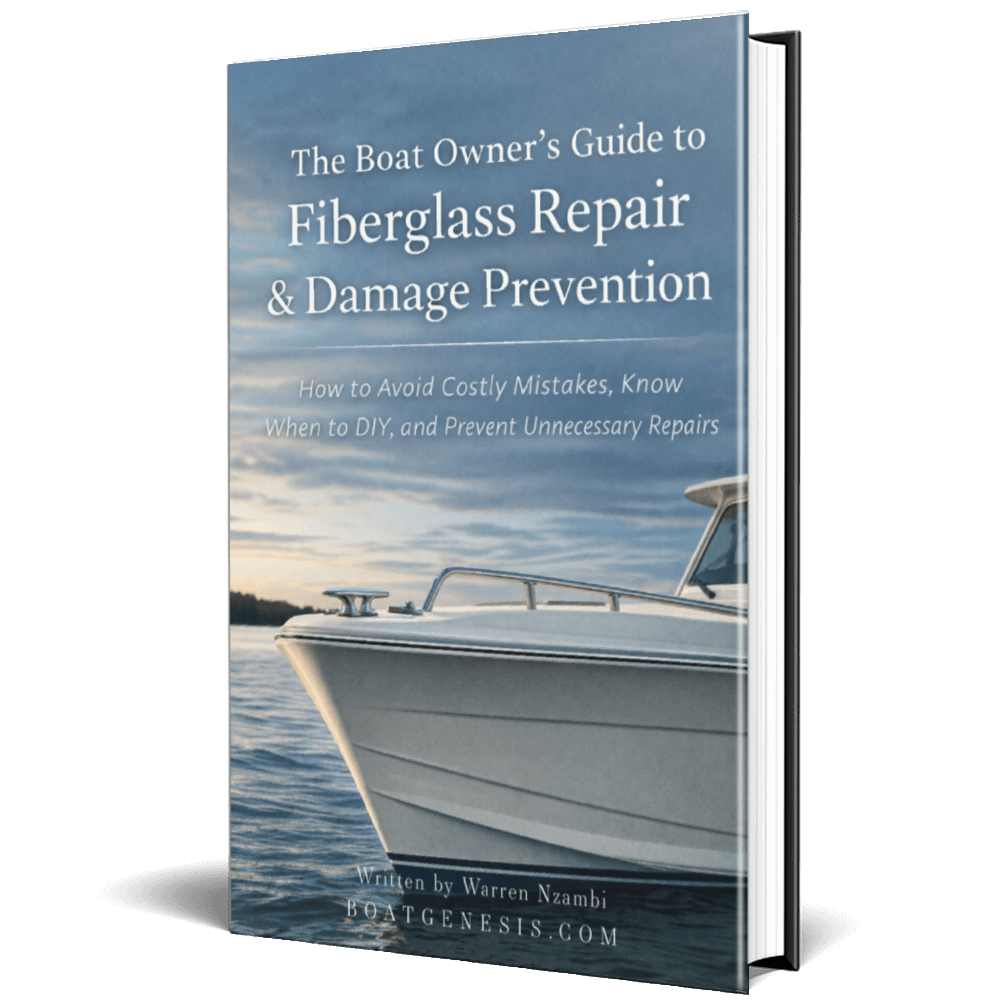When it comes to maintaining the look of your boat, understanding the longevity and care of its gelcoat is crucial. So, how long does boat gelcoat last?
Typically, a well-applied and maintained gelcoat can last anywhere from 10 to 15 years.
However, this lifespan can vary based on several factors, including environmental conditions, maintenance practices, and the quality of the gelcoat used.
Key Takeaways
- Lifespan: Properly maintained gelcoat can last 10-15 years.
- Factors Influencing Longevity: Environmental exposure, maintenance routines, and gelcoat quality.
- Maintenance Tips: Regular cleaning, waxing, and addressing minor damages promptly.
- Signs of Wear: Fading, chalking, and cracks.
What is Gelcoat?
Gelcoat is a specialized resin used to provide a high-quality finish on the visible surfaces of a boat. It not only enhances the aesthetic appeal but also offers a protective layer against UV rays, water, and minor abrasions.
This coating is typically applied during the manufacturing process but can also be reapplied if necessary.
Factors Influencing Gelcoat Longevity
Environmental Exposure
Boats that are frequently exposed to harsh sunlight, saltwater, and varying weather conditions tend to experience faster gelcoat degradation.
Want to avoid costly fiberglass boat repair mistakes?
Learn how to inspect damage properly, decide when to DIY, and prevent expensive fiberglass problems before they start.
UV rays can cause the gelcoat to fade and chalk, while saltwater can lead to surface erosion if not properly rinsed off.
Maintenance Practices
Regular maintenance significantly extends the life of your boat’s gelcoat. This includes routine cleaning, waxing, and polishing to remove contaminants and protect the surface.
Neglecting these practices can result in accelerated wear and tear.
Quality of Gelcoat
The quality of the gelcoat itself plays a major role in its durability. High-quality gelcoats, often used by reputable manufacturers, offer better resistance to environmental factors and wear.
Conversely, lower-quality gelcoats may require more frequent maintenance and touch-ups.
Maintenance Tips for Prolonging Gelcoat Life
Regular Cleaning
Regularly clean your boat to remove salt, dirt, and other contaminants. Use a mild detergent and a soft brush to avoid scratching the surface. Rinse thoroughly with fresh water to remove all residues.

This guide helps boat owners understand fiberglass damage clearly — what matters, what doesn’t, and when repairs are truly necessary, so small issues don’t turn into expensive mistakes.
See What Every Boat Owner Should Know →Waxing and Polishing
Waxing your boat at least twice a year provides an additional protective layer over the gelcoat. This helps to repel water and reduce UV damage. Polishing can restore the gelcoat’s shine and remove minor surface imperfections.
Addressing Minor Damages
Promptly address any minor cracks or chips in the gelcoat. Small damages can quickly escalate if water penetrates the surface, leading to more extensive repairs. Use a gelcoat repair kit to fix minor issues before they worsen.
Signs Your Gelcoat Needs Attention
Fading and Chalking
One of the first signs of gelcoat aging is fading and chalking. This occurs when the gelcoat loses its gloss and develops a powdery residue. Regular waxing can help prevent this, but once it starts, polishing may be necessary to restore the shine.
Cracks and Crazing
Cracks, often referred to as crazing, can develop over time due to stress and environmental factors. These need to be repaired promptly to prevent water intrusion and further damage.
Yellowing
Gelcoat can sometimes yellow over time, especially if exposed to pollutants or certain chemicals. Regular cleaning and protective coatings can help mitigate this issue.
What Others Might Not Tell You
The Impact of Storage Conditions
Many pros overlook the importance of storage conditions on gelcoat longevity. Storing your boat in a covered area or using a boat cover can significantly reduce exposure to harmful UV rays and environmental pollutants, thereby extending the life of the gelcoat.
The Role of Professional Inspections
Regular professional inspections can catch potential issues early. While DIY maintenance is crucial, professionals can provide a more thorough assessment and recommend specific products or techniques suited to your boat’s needs.
The Importance of Gelcoat Thickness
The thickness of the gelcoat layer can also influence its durability. A thicker gelcoat provides better protection but may require more skilled application to avoid issues like sagging or uneven curing.
Conclusion
Understanding how long boat gelcoat lasts and the factors influencing its longevity can help you better maintain your boat’s appearance and structural integrity.
With proper care, including regular cleaning, waxing, and promptly addressing minor damages, you can ensure your gelcoat remains in excellent condition for years to come.
For more detailed information on gelcoat maintenance, you can check out these insightful discussions on The Hull Truth.

Warren is the founder of BoatGenesis and brings practical experience in fiberglass boat repair, marine equipment testing, and powerboat building. He has worked on a range of repair and restoration projects and now focuses on creating clear, research-based guides to help boat owners avoid costly mistakes and make smarter maintenance decisions. Learn more about Warren.




